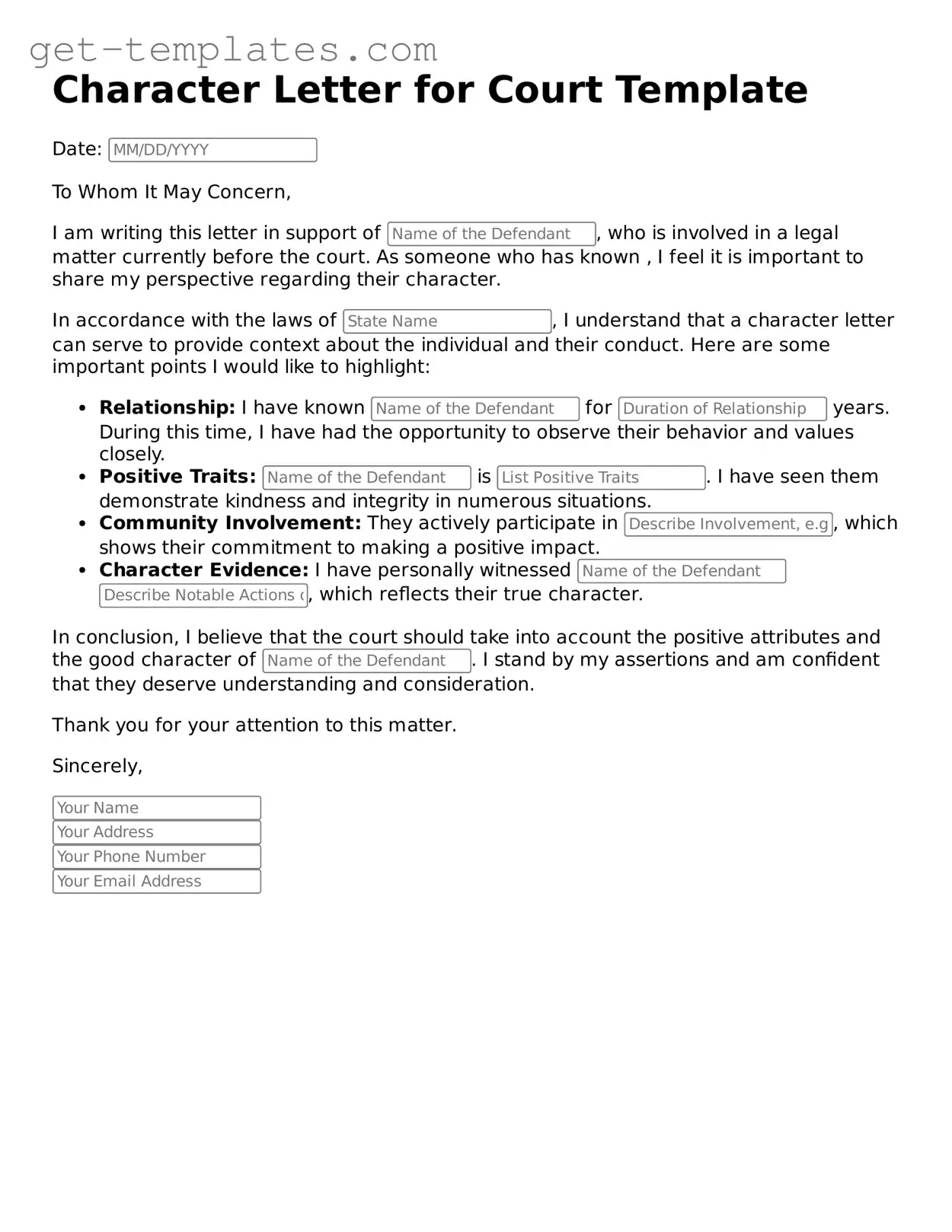What is a Character Letter for Court?
A Character Letter for Court is a written statement that provides insight into a person's character, behavior, and reputation. It is often used in legal proceedings to support an individual who is facing charges or is involved in a court case. These letters can come from friends, family members, colleagues, or community leaders who can attest to the individual’s character and positive traits.
Who should write a Character Letter?
Anyone who knows the individual well and can speak to their character can write a Character Letter. This includes:
-
Family members
-
Friends
-
Employers or colleagues
-
Community leaders or mentors
It’s important that the writer has a genuine relationship with the person and can provide specific examples of their positive traits.
What should be included in a Character Letter?
A Character Letter should typically include the following elements:
-
The writer’s relationship to the individual.
-
Specific examples that illustrate the individual’s good character.
-
Details about the individual’s contributions to the community or family.
-
A statement of support for the individual in their current legal situation.
These components help create a compelling narrative that highlights the individual's positive attributes.
How long should a Character Letter be?
A Character Letter should generally be concise, ideally one page in length. This allows the writer to communicate their points clearly without overwhelming the reader. It’s best to focus on quality over quantity, ensuring that every sentence adds value to the letter.
While there is no strict format, a Character Letter should follow a professional structure. It typically includes:
-
The writer's address and date at the top.
-
The court's address.
-
A formal salutation (e.g., "Dear Honorable Judge").
-
A closing statement and signature at the end.
Using a clear and respectful tone throughout the letter is crucial.
Can a Character Letter impact the court's decision?
Yes, a well-written Character Letter can positively influence a judge's perception of the individual. It provides context and personal insight that may not be available through other evidence. However, while it can be beneficial, it is just one part of the overall case and should be supported by other evidence and arguments.
How should I submit a Character Letter to the court?
Submission methods can vary by court. Typically, the letter should be included in the case file or presented during the hearing. It’s advisable to check with the court clerk or the attorney handling the case for specific submission guidelines. Ensuring that the letter is submitted in a timely manner is also important.

